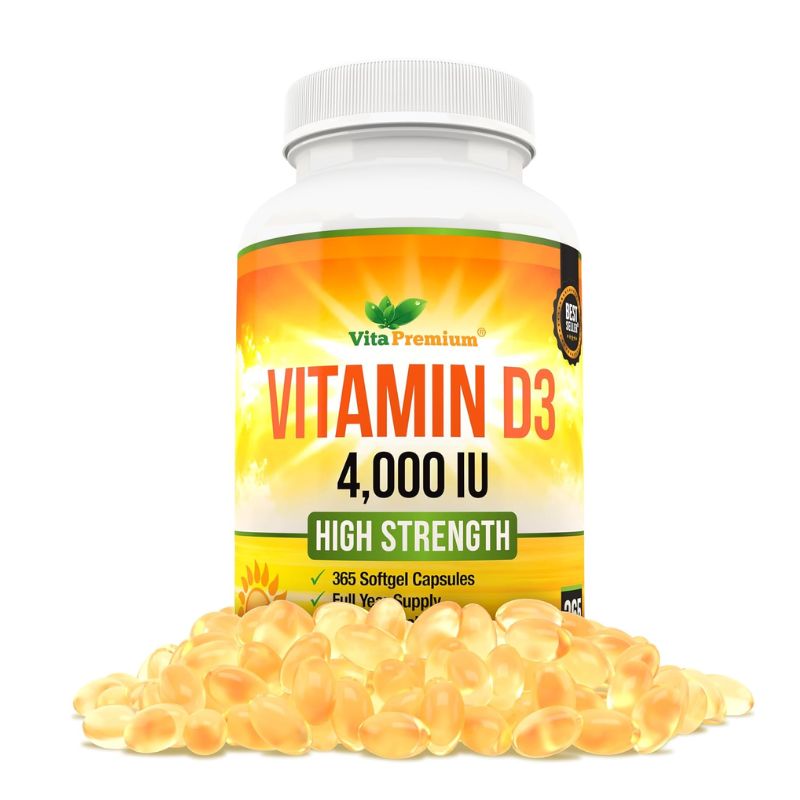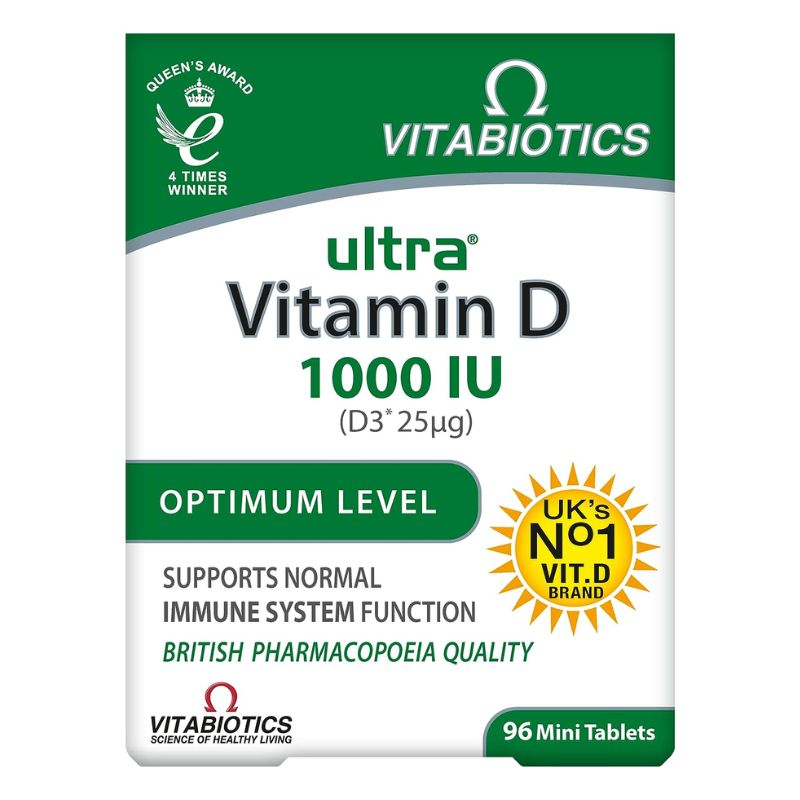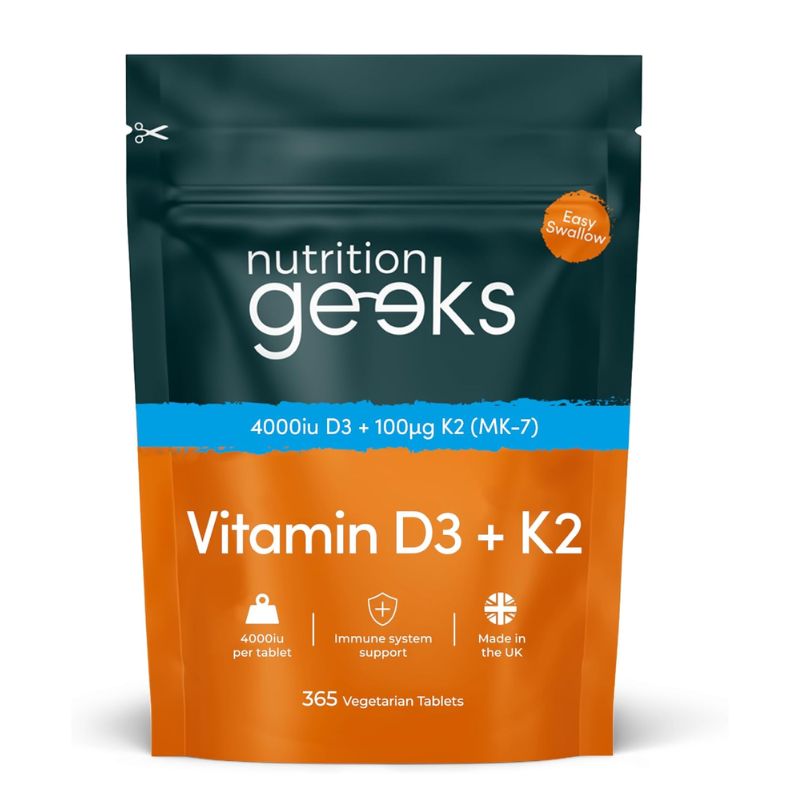The surprising reason some people still need to take vitamin D in summer
Vitamin D is an essential winter must-have but some people need to take it in the summer too - here's why, according to a nutritionist


These days, most people include a vitamin D supplement in their 'must-haves' for the autumn and winter seasons when sunshine is in short supply - but some people may also need to take a vitamin D supplement during the summer months as well.
In the summer, we get most of our vitamin D from the sun. However, as we become more aware of the harmful impact of unprotected sun exposure, more of us are covering up with clothes, hats, and sun cream. While this certainly has its benefits for our health, we may be missing out on some of the benefits of vitamin D because of it.
"Vitamin D plays a vital role in supporting mood, heart and bone health. It’s particularly important in supporting calcium absorption too," says nutritionist Jenna Hope. With this in mind, it's hardly surprising that so many of us want to make sure we're getting enough vitamin D throughout the year.
Should I take vitamin D in summer?
Even in the heat of the summer, some people may need to supplement with vitamin D. This includes those who get little to no exposure to the sun as they spend their days inside, those who wear clothes that cover up most of their skin when outdoors, and those who wear a daily SPF. It's easy to assume you're getting enough vitamin D just because it's summer, but this isn't always true.
It's essential to limit the harmful effects of the sun all year round, but wearing body and facial sunscreen can make it harder for the body to absorb this vitamin. "Wearing SPF can inhibit vitamin D synthesis, so those wearing daily SPF may also require a vitamin D supplement," says Hope.
Those who spend time outside but less time in the sun than others during warmer months and anyone unable to synthesise enough vitamin D from the sun to meet the recommended requirements may also benefit from eating foods high in vitamin D or taking a supplement. This includes higher-risk individuals, "such as pregnant women, breastfeeding women, and the elderly", says Hope, along with babies and children.
According to nutrition researchers at Vitabiotics, the UK Department of Health recommends that babies up to one year of age have a daily supplement with up to 10mg (400IU) of vitamin D - unless they are having at least 500ml of infant formula per day, as this is already fortified with the vitamin. Children between one and four should have a daily supplement for the same reasons.
Sign up for the woman&home newsletter
Sign up to our free daily email for the latest royal and entertainment news, interesting opinion, expert advice on styling and beauty trends, and no-nonsense guides to the health and wellness questions you want answered.

Registered nutritionist and author Jenna Hope has a Bachelors and Masters degree in Nutrition. Jenna is the founder of Nutrition Consultancy and Clinic, Jenna Hope Nutrition. She works closely with individuals, brands, companies and the media to help them interpret the science in order to implement smarter strategies for nutrition and support health and wellbeing for the long term.
Should I take vitamin D if I'm in the sun a lot?
The sun is the best source of vitamin D. However, even if you are in the sun a lot, you may still need to take a vitamin D tablet. For example, depending on what SPF sunscreen you wear on your face every day, you may still need a supplement if you wear a factor 50 sun cream and keep it topped up. Equally, if you don't wear clothes that allow the sun to get to your skin, or there's a reason why the body can't properly synthesise vitamin D.
As always, you should speak to your doctor if you are concerned you're not getting enough vitamin D.
The sun isn't the body's only way of getting the vitamin, however. Fatty fish, red meat, liver, egg yolks, cheese, bananas, and cereals fortified with additional nutrients are also rich in this vital nutrient.
And of course, you can continue taking (or start taking) a vitamin D3 supplement of your choice to boost your mood and continue to protect your heart and bone health in the summer.

Vita Premium's vitamin D3 capsules offer the maximum recommended amount per day of 400IU per tablet in easy-to-take soft capsules. There are 365 capsules in every bottle too, so you won't have to worry about running out when winter rolls around again either.
Can you have too much vitamin D?
If you're getting your vitamin D from the sun, you can never have too much - "your body will stop synthesising the vitamin" when it's had enough, says the nutritionist. However, you can take too much vitamin D in summer via supplements.
"Toxicity from supplementation can occur if you take very high doses regularly," she says. "Symptoms include nausea, vomiting, fatigue, muscle weakness, and bone pain, to name a few."
If you take too much vitamin D, you can also develop a condition called hypercalcemia over time - when you have too much calcium in the body. This weakens the bones and damages organs like the kidneys and heart.
How much vitamin D should I take in the summer?
The NHS recommends that adults take no more than 10mg per day (4,000 IU), whether you're supplementing with vitamin D in summer or the winter. As many people get enough vitamin D from the sun between mid-March and September, even when wearing sun cream, supplementing may not be necessary or you may want to take a reduced amount of vitamin D.

Grace Walsh is woman&home's Health Channel Editor, working across the areas of fitness, nutrition, sleep, mental health, relationships, and sex. She is also a qualified fitness instructor. In 2025, she will be taking on her third marathon in Brighton, completing her first ultra marathon, and qualifying as a certified personal trainer and nutrition coach.
A digital journalist with over seven years experience as a writer and editor for UK publications, Grace has covered (almost) everything in the world of health and wellbeing with bylines in Cosmopolitan, Red, The i Paper, GoodtoKnow, and more.
-
 Creative ways to enjoy food at home for a dinner party with a difference
Creative ways to enjoy food at home for a dinner party with a differenceTimeless culinary combinations and some fresh ideas from food and drinks experts
By Lauren Hughes
-
 Comfy, chic and the perfect spring shade - Kate Garraway's vintage blue Sezane jumper dress ticks all the right boxes
Comfy, chic and the perfect spring shade - Kate Garraway's vintage blue Sezane jumper dress ticks all the right boxesKate Garraway's blue Sezane jumper dress has you covered if chicness, comfort and gorgeous spring tones are at the top of your style checklist this season.
By Caitlin Elliott

